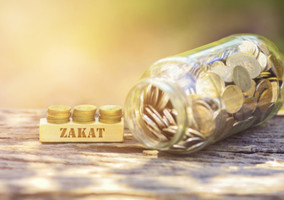Charities that prioritise increasing donor loyalty will receive higher fundraising incomes in future, a report has claimed.
About Loyalty, a research-based consultancy, analysed donations made by almost 49,000 donors to 12 charities since 2019 to determine the impact of growing loyalty on future giving.
Researchers calculated a “loyalty score” from one to seven for each donor in the study after asking them a series of questions about their commitment, satisfaction and trust for the charity.
The analysis, published this week, found that a one-point increase in donors’ loyalty score led to a 15% increase in the number of supporters continuing to give to charities over three years and a 20% increase in the value of these donations.
This means that a charity with 70,000 donors could get an additional £1m over the same period of time.
The report also showed that 9% more donors would be more likely to include a legacy gift in their will.
Commitment, satisfaction and trust
The researchers looked at 10 emotional drivers of supporter loyalty and identified three that are key to building behavioural loyalty across all causes and forms of charitable giving: commitment, satisfaction and trust.
They then used these three drivers to create a “loyalty score” that scored each participating donor from one (lowest) to seven (highest).
They established that trust plays a greater role for donors who support overseas aid and disaster relief charities than for those supporting other sectors including animal welfare and health research.
Loyalty is lower for new supporters who need more “reassurance in their decision to support the charity, and have a need to feel valued”.
The researchers also found that donors recruited through direct response TV are more likely to be loyal than those recruited through door-to-door or private site fundraising.
‘A clear strategy’
The report noted that charities with better loyalty ratings tended to prioritise investing in relationships with donors.
It said: “Charities that have been successful in creating this culture have a clear strategy for developing supporter relationships that is shared across the organisation. They invest, allocating money and time to make sure it happens.
“And they have clear and specific measures in place to ensure that improving the supporter experience is a consistent priority.”
Roger Lawson, director and founder of About Loyalty, said: “We’ve all known for many years that the way we make supporters feel directly impacts whether they’ll go on to support us again. But we’ve never been able to prove the relationship with future giving, or which emotions are the most powerful. This ground-breaking study proves just that.
“For charities that want to grow supporter loyalty and long-term income, these are essential insights that can and should be applied at the very heart of every supporter development programme.”
Related articles












